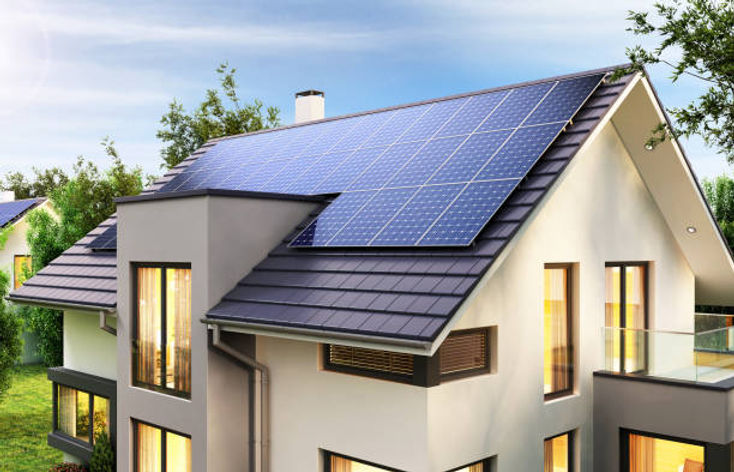As the world grapples with the challenges of climate change and the need for sustainable energy solutions, solar roofing has emerged as an increasingly popular option for homeowners looking to harness the power of the sun. Solar roofing combines the benefits of a traditional roof with the capability to generate electricity. In this blog, we'll explore the pros and cons of solar roofing to help you determine if it's the right choice for your home.
Pros of Solar Roofing
- Renewable Energy Source: Solar roofing systems generate electricity from sunlight, a clean and renewable energy source. By using solar panels as roofing materials, you can significantly reduce your reliance on fossil fuels, lower your carbon footprint, and contribute to a more sustainable future.
- Energy Cost Savings: One of the most significant advantages of solar roofing is the potential for substantial energy cost savings. Solar panels can offset a portion, if not all, of your electricity bills, depending on the size of the system and your energy consumption. In some cases, you may even generate excess electricity that can be sold back to the grid.
- Increased Home Value: Solar roofing can increase the resale value of your home. Many homebuyers are willing to pay a premium for properties with solar panels already installed, as they recognize the long-term cost savings and environmental benefits associated with solar energy.
- Environmental Benefits: Solar roofing systems produce clean energy, reducing greenhouse gas emissions and air pollution. Using solar power helps combat climate change and contributes to a healthier environment for future generations.
- Energy Independence: By generating your electricity, you become less dependent on utility companies and their fluctuating rates. This can provide stability and peace of mind, especially during times of energy price spikes or outages.
- Incentives and Tax Credits: Governments and utility companies often offer incentives, rebates, and tax credits to encourage the adoption of solar technology. These financial benefits can significantly reduce the upfront cost of installing solar roofing.
Cons of Solar Roofing
- High Initial Cost: The installation of a solar roofing system can be expensive, including the cost of solar panels, inverters, and labor. Although there are financial incentives, the initial investment may still be a barrier for some homeowners.
- Weather Dependency: Solar panels rely on sunlight to generate electricity, so their efficiency can be affected by weather conditions. Cloudy days, shading, and geographic location can all impact the system's performance.
- Aesthetic Considerations: Solar panels on your roof may alter the appearance of your home. Some homeowners may find the look of solar panels less appealing, while others appreciate the modern, eco-friendly aesthetic.
- Space Requirements: Installing a solar roofing system requires adequate roof space with optimal sun exposure. In some cases, the available space may not be sufficient to meet your energy needs, or it may require alterations to your roof.
- Maintenance Costs: While solar panels are relatively low-maintenance, they do require occasional cleaning and inspection to ensure they function optimally. Additionally, inverters and other components may require maintenance or replacement over time.
- Long Payback Period: The return on investment for solar roofing can take several years to realize, depending on various factors like energy consumption, local electricity rates, and incentives. This long payback period may not be suitable for everyone.
Conclusion
Solar roofing offers numerous advantages, including clean energy generation, cost savings, and environmental benefits. However, it also comes with some challenges, such as the initial cost and weather dependency. Ultimately, the decision to invest in solar roofing should be based on your specific circumstances, including your budget, energy consumption, and commitment to sustainability. As technology advances and becomes more affordable, solar roofing is likely to become an even more attractive option for homeowners seeking to reduce their carbon footprint and save on energy costs.


